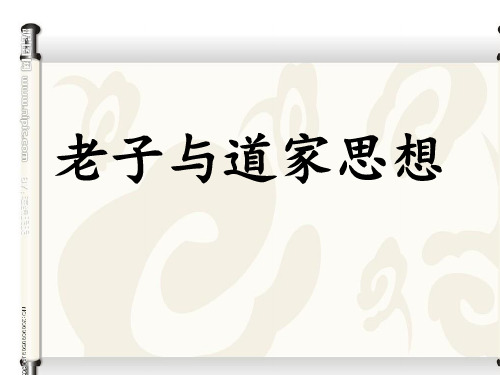and Taoism
老子及其思想
老子(约公元前571年—公元前471年), 姓李名耳,字聃。是我国古代伟大的哲学家和 思想家、道家学派创始人。在道教中,老子被 尊为道教始祖。老子乃世界文化名人,世界百 位历史名人之一,存世有《道德经》(又称 《老子》),主张无为而治,其学说对中国哲 学发展具有深刻影响。
What is "Non-action"? (何为“无为”?)
Wu wei : means " non-action" or "to take things let their own course", proposed by Lao Zi, is not doing nothing, but comply to nature, excludes the unnecessary indulging, and not reluctantly using people’s power to interfere the natural or social laws own development. 老子提出的“无为”,不是什么也不做,而是指 要顺应自然,排除不必要的妄为,不要勉强用人事 的力量去干扰自然规律或社会规律的自身发展。
Lao-Tzu’s sayings:
道可道,非常道;名可名,非常名。 无名,天地之始;有名,万物之母。
The Tao that can be told of ,is not the Absolute Tao; The Names that can be given,are not Absolute Names. The Nameless is the பைடு நூலகம்rigin of Heaven and earth; The Named is the Mother of All Things.





